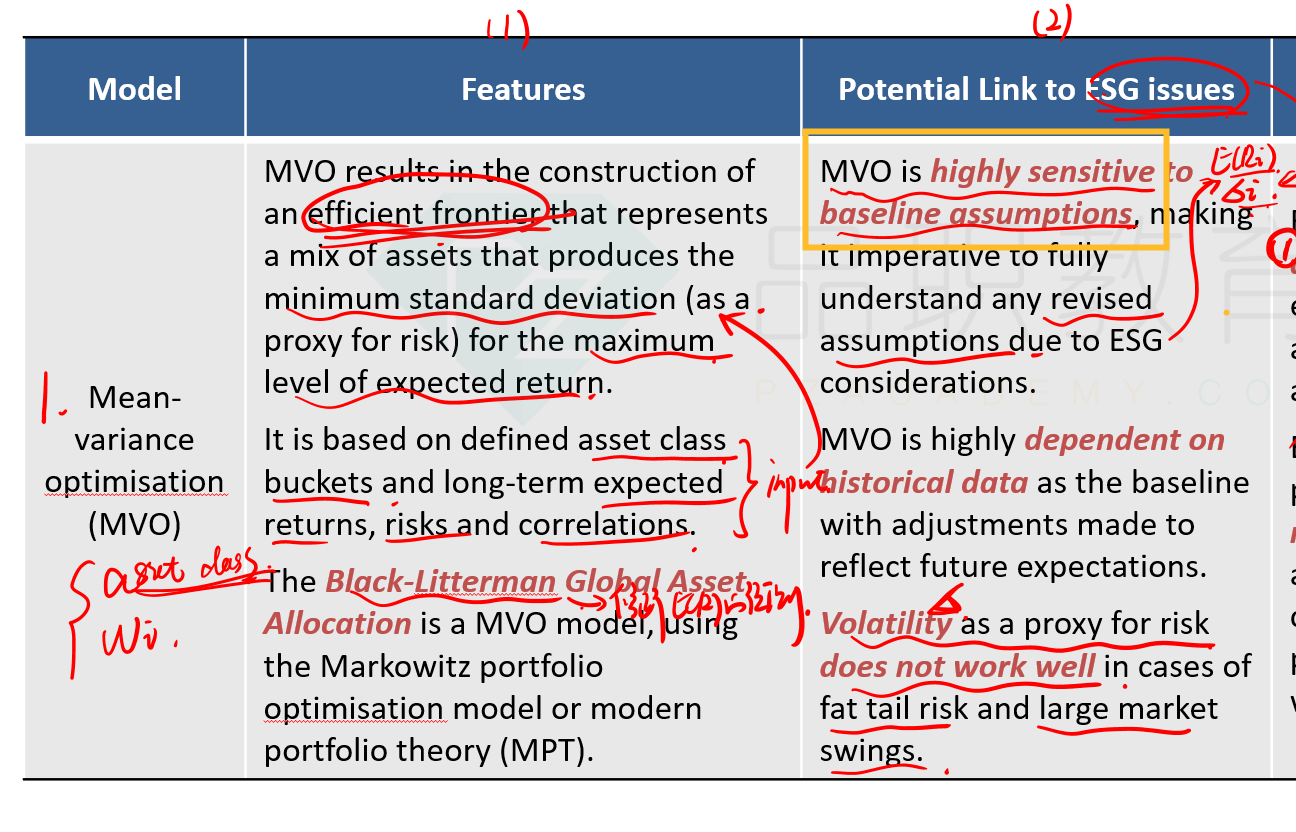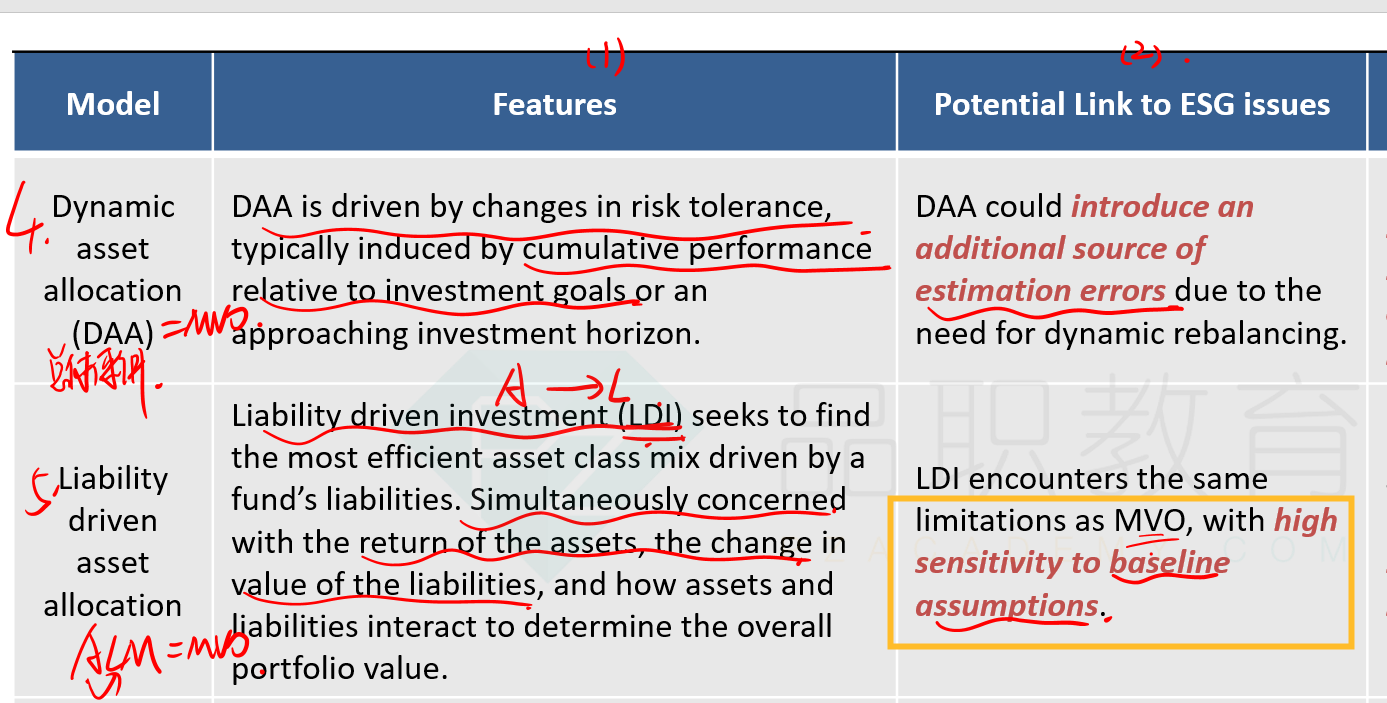NO.PZ2022120703000081
问题如下:
Which of the following strategic asset allocation model(s) is highly sensitive to baseline assumptions?
选项:
A.Mean-variance optimization (MVO) only
B.Liability driven asset allocation (LDI) only
C.Both mean-variance optimization (MVO) and liability driven asset allocation (LDI)
解释:
C is correct because both Mean-variance optimisation (MVO) and Liability driven asset allocation (LDI) are highly sensitive to baseline assumptions. In particular, “MVO is highly sensitive to baseline assumptions…” and “LDI encounters the same limitations as MVO, with high sensitivity to baseline assumptions.”
A is incorrect because both Mean-variance optimisation (MVO) and Liability driven asset allocation (LDI) are highly sensitive to baseline assumptions. In particular, “MVO is highly sensitive to baseline assumptions…” and “LDI encounters the same limitations as MVO, with high sensitivity to baseline assumptions.”
B is incorrect because both Mean-variance optimisation (MVO) and Liability driven asset allocation (LDI) are highly sensitive to baseline assumptions. In particular, “MVO is highly sensitive to baseline assumptions…” and “LDI encounters the same limitations as MVO, with high sensitivity to baseline assumptions.”
MVO是构建一个有效的前沿(efficient frontier),这个前沿代表能够产生最大预期回报水平和最小标准差的资产组合。它基于已定义的资产类别、长期预期回报、风险和相关性。
LDI是“负债驱动投资”,首先有一组负债,然后寻求找到由负债驱动的最有效的资产类别组合。它同时关注资产的回报、负债价值的变化,以及资产和负债如何相互作用来决定整体投资组合的价值。
MVO和LDI的最大局限性,都是对baseline assumptions很敏感。





